In this article I will discuss the Best Trading Platform To Make money.
There are a lot of platforms, so it is important to pick one that corresponds with your trading objectives, has low fees, and has sophisticated tools.
It does not matter whether you are a novice or a rather seasoned trader, the platform you work on will have a significant effect on how profitable you are and your overall trading experience.
Key Point & Best Trading Platform To Make money List
| Platform | Key Features |
|---|---|
| Plus500 | User-friendly, CFD trading, wide range of instruments, demo account |
| Fidelity | Comprehensive research tools, retirement accounts, low-cost trading |
| Webull | Commission-free trading, advanced charting, real-time market data |
| Saxo Bank | Global trading options, advanced research, robust platform for professionals |
| Interactive Brokers | Low margin rates, access to global markets, advanced trading tools |
| TD Ameritrade | Wide range of investment products, educational resources, powerful trading tools |
| MetaTrader 4 (MT4) | Popular for forex, customizable charts, automated trading with Expert Advisors |
| Charles Schwab | No-fee stock trading, comprehensive research, retirement planning tools |
| Robinhood | Commission-free trading, user-friendly, limited investment options |
| AvaTrade | Global trading platform, low spreads, multiple asset classes |
10 Best Trading Platform To Make money
1.Plus500
Plus500 understanding the nuances of CFD trading is an easy to use platform. The platforms offers a variety of instruments: stocks, commodities, forex making it easy for newbies and advanced traders to venture out.
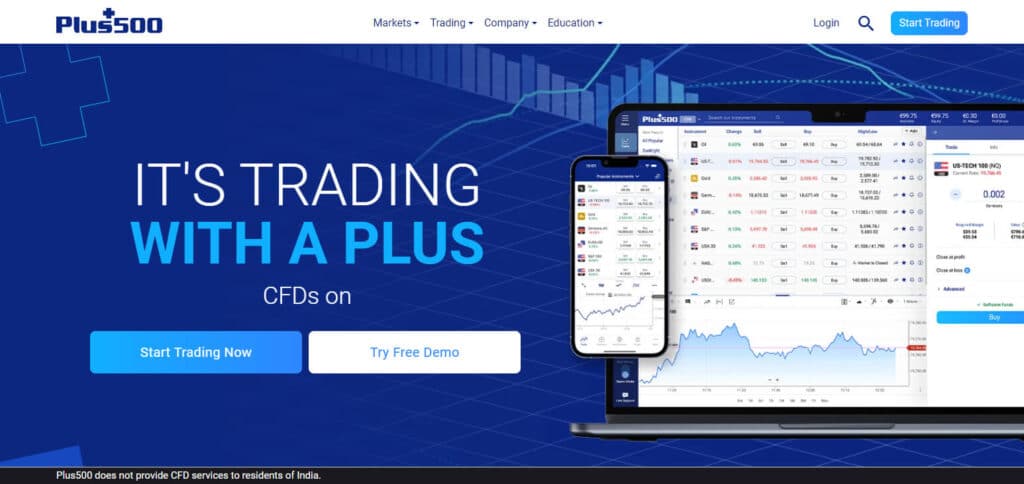
The interface is pleasing, making it easy to use, and has a demo account as well.
The platform is compliant with different regions which makes it more trustworthy, and their low spreads and no commission fees makes them a good option for traders trying to increase their returns.
Pros & Cons Plus500
Pros
Cons
2.Fidelity
Fidelity is a great choice due to its multiple directed research instruments, low trading cost, and several investment opportunities.
It has a big pool of stock mutual funds and fund effervescent trading. Fidelity is also well known for its retirement accounts, which fits those who can hold securities for a long period.

In addition, there is a great scope of research, investment strategies and planning which guides the users while making such important decisions.
A no-fee policy regarding trades of those mutual funds, stocks and ETF gives an advantage to long term traders in terms of investment return maximization.
Pros & Cons Fidelity
Pros
Cons
3.Webull
Webull is one of the leading platforms in the trading world thanks to its powerful charting tools as well as access to real-time information and data since it allows commissioning-free stock trading.

It covers stocks, options as well as etfs while also providing extended trading days. Webull has a very adjustable interface which allows users to customize it according to their liking.
It even has a ton of research reports, detailed market stats and a paper trading functionality for new users to practice. Since there are no commissions take, it is an efficient method to enter the trading market.
Pros & Cons Webull
Pros
Cons
4.Saxo Bank
For expert traders who are looking for a comprehensive solution, Saxo Bank provides a professional level trading experience utilizing best trading strategies across different assets, including forex, commodities and stocks.
Furthermore, in-depth analysis and high / low market research allows traders to make important and informed decisions.

For traders of this nature, the availability of high quality charts and stabilizing security is a bonus since their trades are very specific.
The bank offers its services to a broad range of customers from individuals to large enterprises. It’s affordable for seasoned international traders as well.
Pros & Cons Saxo Bank
Pros
Cons
5.Interactive Brokers
Interactive Brokers is renowned for having some of the lowest margin rates and ability to trade around the world, making it a great platform for international traders.
The platform has a variety of assets available for trading, such as stocks, forex and bonds.
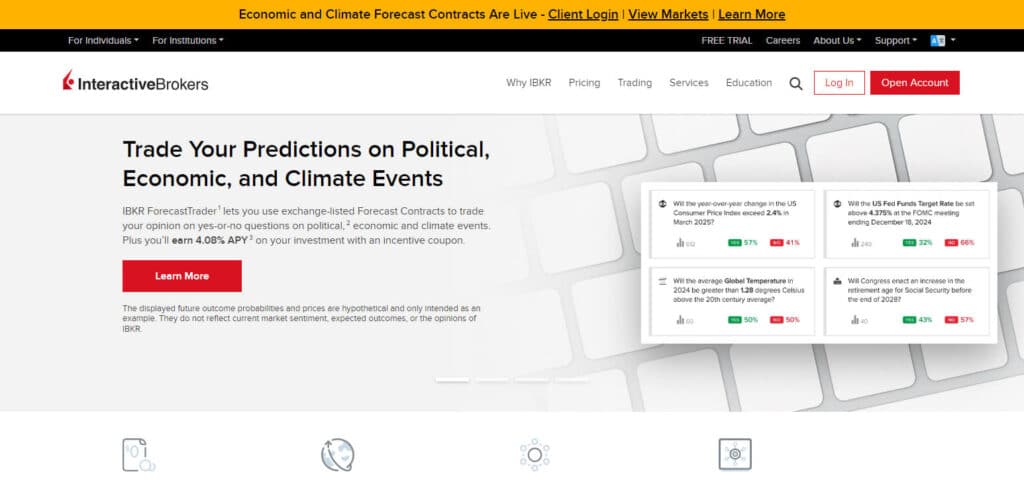
The brokers have very effective trading tools at their disposal and a detailed research portfolio which qualifies them as even professional traders.
The brokers have low rates with quick execution of trades hence are preferred by day traders and traders who quickly look for large amounts to buy and sell for profit maximization.
Pros & Cons Interactive Brokers
Pros
Cons
6.TD Ameritrade
TD Ameritrade is a well-known broker with a rich source of educational material which suits well for novice and veteran traders alike.
It gives its clients the ability to trade a vast variety of investment products, including stocks, options and futures.
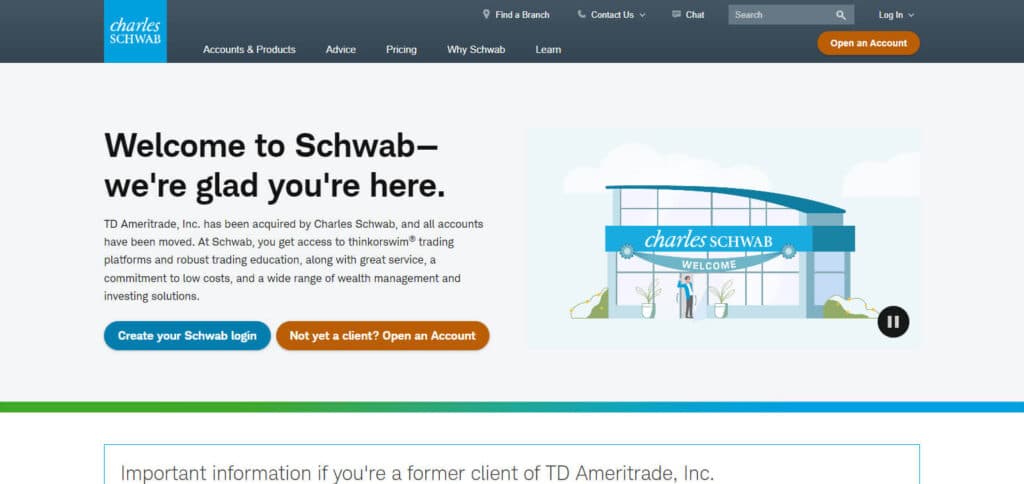
The platform Thinkorswim is equipped with additional and advanced tools, charting and professional traders technical analysis.
TD Ameritrade has also established itself in terms of good service and research and analysis, allowing users to be more accurate in navigating the market and more effective in implementing their investment strategies.
Pros & Cons TD Ameritrade
Pros
Cons
7.MetaTrader 4 (MT4)
MetaTrader 4, or simply MT4, is favored by most forex traders for its versatility, and advanced features. It has many advanced options allowing traders to set up various strategies such as using Expert Advisors (EAs).
The trading interface is graphical with many different charts and technical tools available.
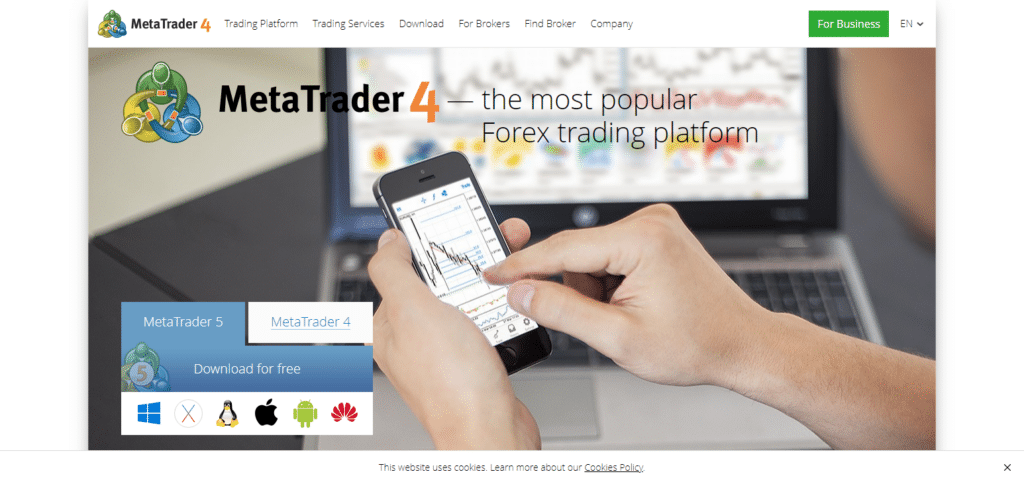
The platform is light in weight, simple to operate, and user personified. MT4 also offers a lot of resources for backtesting which enables traders to refine their strategies before going live.
The vast world of the forex market extends through it, which is why many seasoned traders are drawn to it.
Pros & Cons MetaTrader 4 (MT4)
Pros
Cons
8.Charles Schwab
Charles Schwab is an all in one brokerage with no commissions, many investment options and research adverts for stock mutual funds, ETFs and retirement accounts and all these come at a very low quote.
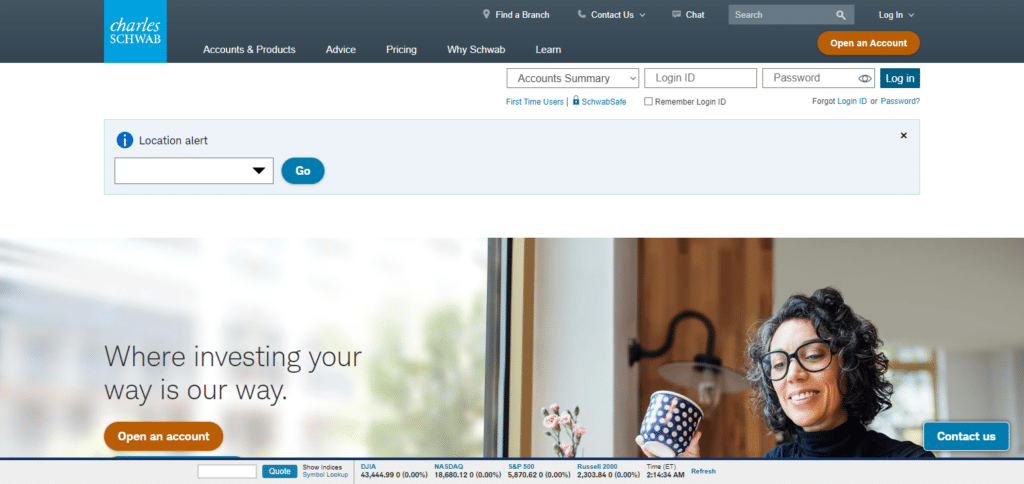
The investment company further has an online site and a mobile application for easy trading. In fact, their beginner education and planning tools will be very helpful for novice investors.
Finally, with a good brand name, low charges inclusive of providers in the marketing and communication area, Charles Schwab is a dependable and a composite place for making a wise investing choice.
Pros & Cons Charles Schwab
Pros
Cons
9.Robinhood
Robinhood is quite a beginner-friendly platform that allows users to trade stocks, ETFs, options and cryptocurrency with zero commission fees. It has a very basic interface which allows even the most basic of users to start investing in the stock market.
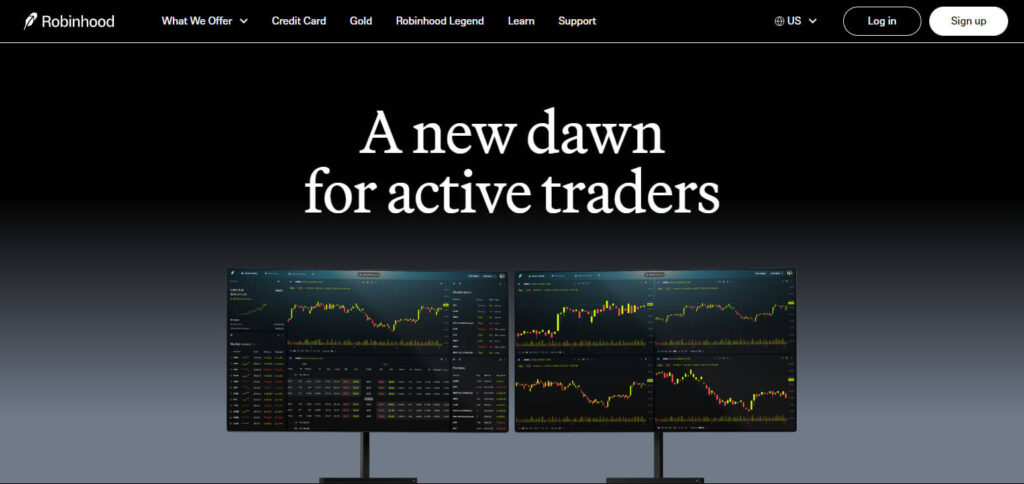
In addition, Robinhood has fractional shares enabling users with a small amount of money to buy expensive stock.
Even though its feature set is quite mediocre as compared to other platforms, the lack of a commission and convenience of operation makes it a great option for passive investors and beginner investors alike.
Pros & Cons Robinhood
Pros
Cons
10.AvaTrade
AvaTrade is an all-encompassing platform for forex, stocks, commodities, and even cryptocurrencies.

Traders can benefit from low spreads with access to advanced trading tools like expert advisors, automated trading, and mobile trading.
Ava works with various regulators in different regions, meaning that their services are safe. Despite their broad offerings, their customer support and educational material are top-notch, making them a great choice for amateurs and pros alike. With Ava clients will not have a problem to move between different devices.
Pros & Cons AvaTrade
Pros
Cons
How To Choose Best Trading Platform To Make money
Fees and Commissions: Most traders operate on thin profit margins and for them to sustain their business, it is imperative that they look for low commission brokers or no commission trades altogether. Be sure to ascertain the accuracy of fees.
Asset Variety: The more the number of asset classes a platform allows to trade (be it stocks, forex, commodities, or cryptocurrencies), the greater the chances of successful trades.
User-Friendly Interface: Interfaces that are well designed and are pleasing to the eye makes it easy to carry out the necessary trades and minimizes the chances of carrying out unintended trades due to errors.
Advanced Tools: The importance of intelligent software that can range from diagramming tools, automated stock market analysis and examining a range of other market conditions cannot be overstated.
Security and Regulation: One of the major concerns for users around the world is that is the platform safe, is it secure and does it follow a regulatory system.
Customer Support: One of the major reasons people lose trust in companies is their bad customer support. It is vital to have strong customer support as with trading, especially day trading, time is of the essence.
Education and Resources: Platforms that provide tutorials, market analysis, and a sense of direction for budding traders are the ones that help them grow as a trader.
Conclusion
Making the choice of which trading platform is most appropriate when trying to establish equity will largely depend on factors such as your trading preferences, how familiar you are with various trading strategies and your goals.
For instance, Plus500, Webull and Fidelity platforms are designed for both beginners and professional traders since they provide a low number of assets, variety and friendly services.
Meanwhile, professional trading features are provided for heavy users through platforms such as Interactive Brokers and Saxo Bank.
In conclusion, the best platform for you will offer you the best costs but also make it easy for you to trade with secure tools and great customer assistance Overall, consider selecting a platform that correspond to your requirements regarding the level of convenience and profitability that you intend to achieve.



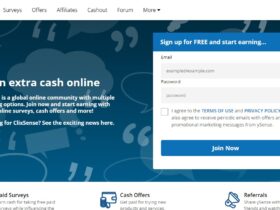








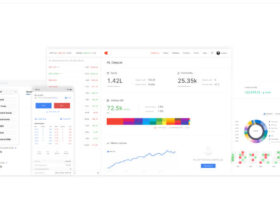
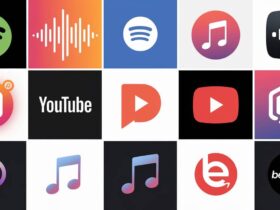
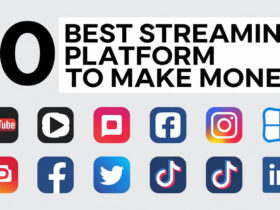

Leave a Reply